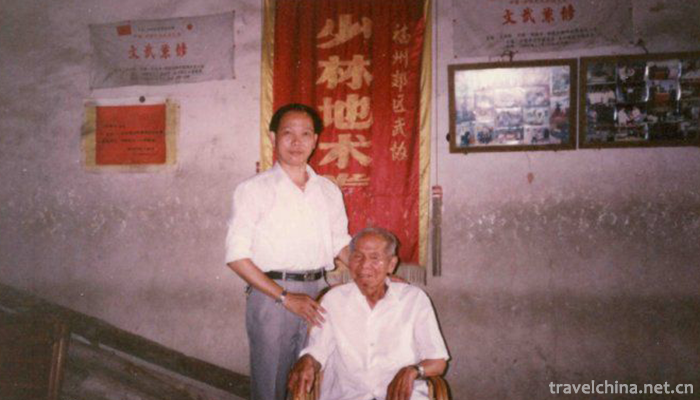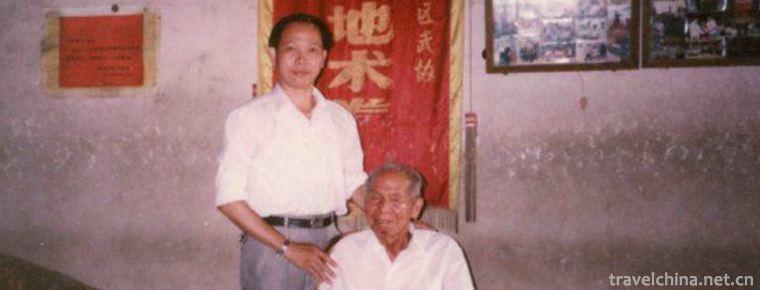Di Shu boxing
Di Shu boxing
Gejiquan is one of the rare traditional types of boxing in southern China, also known as "Gejiu Dog Method", "Dilong Quan" or "Dili Quan". It is commonly known as "Dog Quan" among the people. It has a long history. It belongs to the martial arts and belongs to the sect because of its origin in temples and temples. It also belongs to the Nanquan system because it is located in central Fujian, south of the Yangtze River. Furthermore, Gejiquan imitates the evolution of dog fighting. Therefore, it also has the characteristics of bionic hieroglyphic boxing. The unique ground skills and binding skills of geotechnical boxing are the soul of geotechnical boxing, its only basis for making it different from other boxing.
On May 23, 2011, Gejiquan was approved by the State Council to be listed in the third batch of national intangible cultural heritage.
History
.
Legend has it that in the late Ming and early Qing Dynasty, there was a White Lotus Temple opposite Nanshaolin Temple in Fujian Province. Legend has it that nuns in Nanshaolin Temple were created by nuns in Anzhong in April. At that time nuns in Anzhong nurses were nurses'body-building skills, and their skills were not passed down. The fist was based on the shortcomings of women's small stature and physical strength, which could not be counterbalanced with men, and observed the fighting movements imitating dogs, rolling and tumbling, agile and changeable, fast and fierce, alert and sensitive In the early Qing Dynasty, because Nanshaolin Temple and Bailian Temple participated in anti-Qing activities to restore the Ming Dynasty, they were ordered by the Qing government to burn temples and kill monks and nuns. In April, Shenni was relocated to Chenjia, Yongchun County, Fujian Province, to take refuge in their families. In April, Shenni felt his favor and taught Gejiquan to Chen Biao, the son of Lao Tai Li. Chen Biao, after ten years of hard practice day and night, was proficient in this skill. He regarded it as a secret skill of Wulin. He only passed it on to his sons and daughters.
In the early years of the Republic of China, Chen A-yin was introduced to Chen A-yin, who killed local villains and fled to Chenyi Jiujia in Singapore because of Chen's unequal fighting. Teacher Chen A-yin felt his support and taught Chen Yi-jiu as much as he could. Teacher Chen Yi-jiu loved martial arts at an early age and learned Thai boxing, drunken boxing and Dragon monkey boxing. After Chen A-yin's biography, he devoted himself to studying dog boxing, which was more sophisticated and comprehensive, and was quite popular in Southeast Asia. Famous, known as "Nine Teachers with Iron Feet" and "Nine Divine Legs", he was the president of Singapore Wushu Association. Mr. Chen Yijiu returned to China in 1942 and settled in Fuzhou.


-
1.Nanzhao Custom Island Dali
Nanzhao Custom Island in Dali is one of the three islands in Erhai Lake, located in Shuanglang Township at the southeast end of Eryuan County, the golden section of Cang Er National Scenic Area
Time 2019-01-06 -
2.Pingle Ancient Town
Pingle Ancient Town, located 93 kilometers southwest of Chengdu and 18 kilometers southwest of Qionglai City, is a famous historical and cultural town in China.
Time 2019-02-07 -
3.Cloth paste painting
Teng Teng is the founder of Teng's cloth paste painting. He was born in Fengning Manchu Autonomous County, Hebei Province in 1932. He is the director of Teng's cloth paste painting
Time 2019-04-04 -
4.Northeast drum
Northeast drum was once prevalent in Shenyang, and Shenyang set up the Tianfu in the late Qing Dynasty. So it was called "Fengtian drum" in the eighteenth year of the Republic of China (1929
Time 2019-04-27 -
5.Dongyang wood carving
Dongyang woodcarving, one of the Chinese folk carving arts, is named for its origin in Dongyang, Zhejiang Province. Dongyang woodcarving, together with Qingtian stone carving and Huangyang woodcarving
Time 2019-04-27 -
6.Huizhou folk songs
Huizhou folk song is an ancient traditional folk art in Huizhou area. It is rich in content and diverse in genres, including chants, folk songs, minors, Buddhist and Taoist songs,
Time 2019-05-04 -
7.Canadian Tibetan carpet weaving skills
Canadian Tibetan carpet weaving skills, traditional handicraft in Huangzhong County, Qinghai Province, one of the national intangible cultural heritage.
Time 2019-05-05 -
8.Jin men drum
Jinmen Fagu is a local traditional music and dance art in Tianjin, which appears in the form of performances of the Lao Hui or the Sacred Congregation. In June 2008,
Time 2019-05-07 -
9.Suzhou opera
On June 7, 2008, Hangzhou and Shaoxing City of Zhejiang Province jointly declared "Spring Spring Spring Spring Packing" which was approved by the State Council to be included in the second b
Time 2019-06-18 -
10.Uygur Karakul fetus
There is a folk song "Turpan grape Hami melon, turtle's lamb a flower". Shaya Uygur Hatters use local lamb skin to make various hats, such as Duhuawa, Wuniqie and Dulikun, for people to buy.
Time 2019-06-26 -
11.Left power blossoms
The style of Zuoquan folk songs began to take shape in Sui Dynasty. In 1930s, Zuoquan flowering tune was derived from Zuoquan folk songs. Zuo Quan's blooming tunes are exquisite in conception, novel i
Time 2019-08-16 -
12.Hefei University
hefei university (Hefei University), located in Hefei, the capital of Anhui, is a common higher education institution jointly organized by the state and local governments and cities and municipalities
Time 2019-11-13